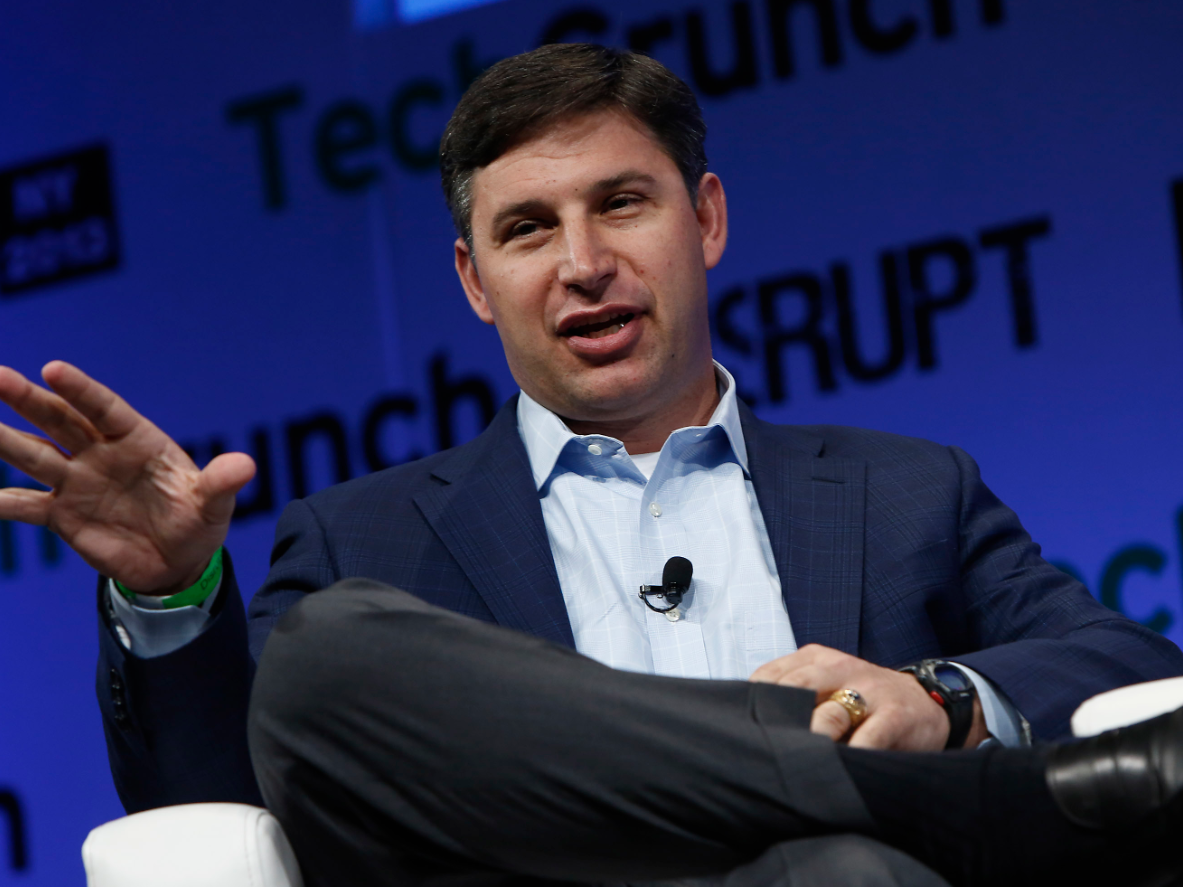- Lending startup Social Finance is launching two no-fee exchange-traded-funds after months of speculation about the first such products.
- Fidelity kicked off the race for free products over the summer summer with the introduction of no-fee mutual funds, which picked up $2.9 billion last year.
- Most managers have stayed away from no-fee funds because they’re money-losers for the firms – and some investors are hesitant, too.
The “race to the bottom” for a no-fee exchange traded fund is over, and the winner is a firm no experts had publicly predicted.
SoftBank-backed Social Finance filed on Monday to launch four ETFs, two of which have no management fees for at least the first year before the fee could increase. The other two ETFs do not yet have management fees listed. The ETFs’ specific launch date has not yet been determined.
ETF managers have been decreasing fees for years to appeal to investors who have been abandoning higher-cost mutual funds for the more tax-efficient and lower-fee products. In 2017, Columbia Threadneedle launched an ETF with no fee for three months, and in August, after years of declining fees in the asset management industry, Fidelity became the first company to offer no-fee mutual funds. That suite of products brought in $2.9 billion last year, Fidelity said in its annual report last week.
In late December, new Canadian ETF provider Accelerate Financial Technologies filed for a suite of ETFs that would not charge a management fee, and would only earn a fee if they outperformed a certain level.
SoFi's two no-fee funds, by contrast, are set up without a management fee until at least March 27, 2020. The fintech company could then keep the fees at zero or increase them up to 0.19%, which means that if an investor put in $10,000, he or she would pay $42 in fees over three years. It's unclear if SoFi, which raised $1 billion in Series E financing led by SoftBank in 2015, is putting any seed capital into the fund.
Some asset management industry sources dismissed SoFi's move as a publicity stunt as the firm looks to promote other products. SoFi recently launched an investment product called SoFi Invest to offer active and automated investing options. It's set up with new, beginner investors in mind: the two free ETFs offer broad US market exposure; a third invests in 50 growth companies; and the fourth invests in gig economy companies.
"All information we're able to share is in the filing," a SoFi spokeswoman said. "We look forward to sharing more about this in the future."
"SoFi is definitely late to arrive to the ETF market (now 26 years old) and needs to make a splash to garner interest," Todd Rosenbluth, the head of ETF and mutual-fund research at CFRA, wrote in a research note. "The firm has done just that ... Despite the lack of revenues tied to zero fee ETFs, CFRA thinks others should follow SoFi's lead."
In December, Rosenbluth predicted that one of four asset managers - Invesco, JPMorgan, Charles Schwab, or State Street - could be the first to launch a no-fee ETF.
Despite the race to zero, many managers will focus on keeping their products low cost instead of abandoning fees, in order to generate some revenue and to assuage investors cautious about free products.
"We strongly believe investors need to go beyond a minuscule or even zero fee to understand what's inside the fund and how it trades," Rosenbluth write. "But if SoFi is able to convince ETF partygoers that their products are worthy of investor attention and assets, it will be a challenge for other firms to ignore."
- Read more:
- SoFi held talks to acquire a fintech company backing some of the hottest robo advisors as it eyes expansion beyond its lending roots
- The incoming CEO of a $362 billion unit of Charles Schwab explains why the firm offers fewer products than rivals
- BlackRock and Microsoft want to make retirement investing as easy as ordering an Uber
- BlackRock's president just highlighted one fast-growing ETF product that will 'catapult' the $6 trillion firm

